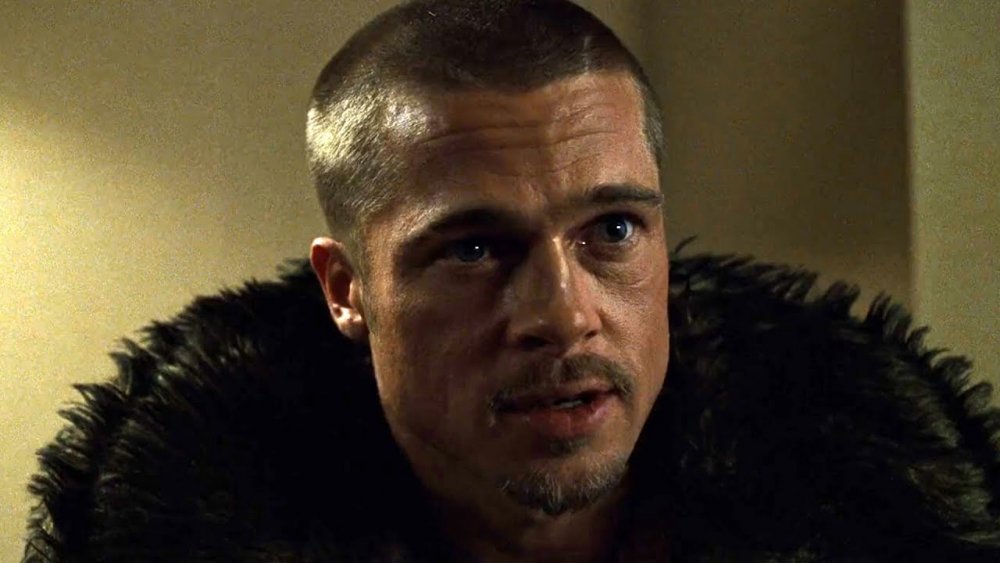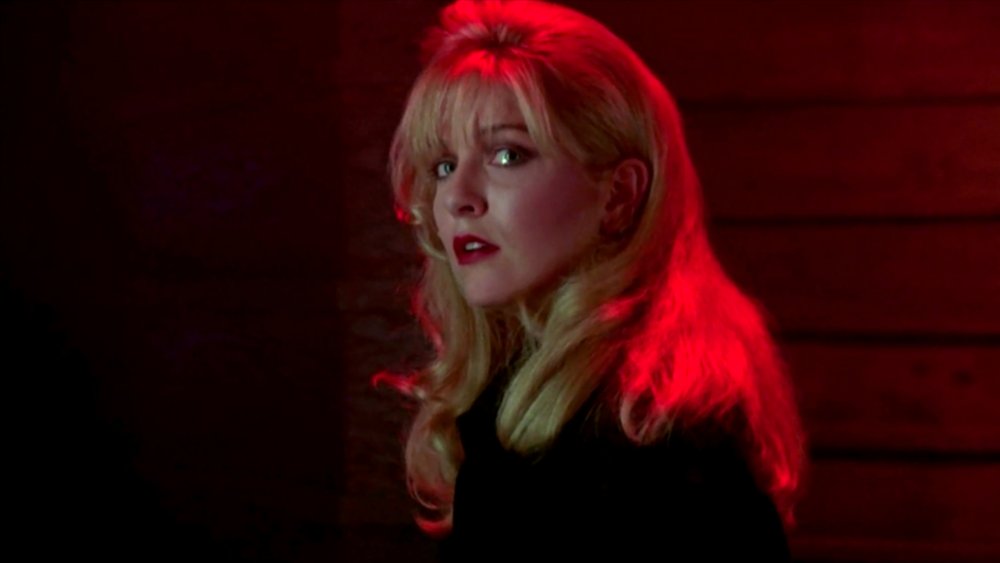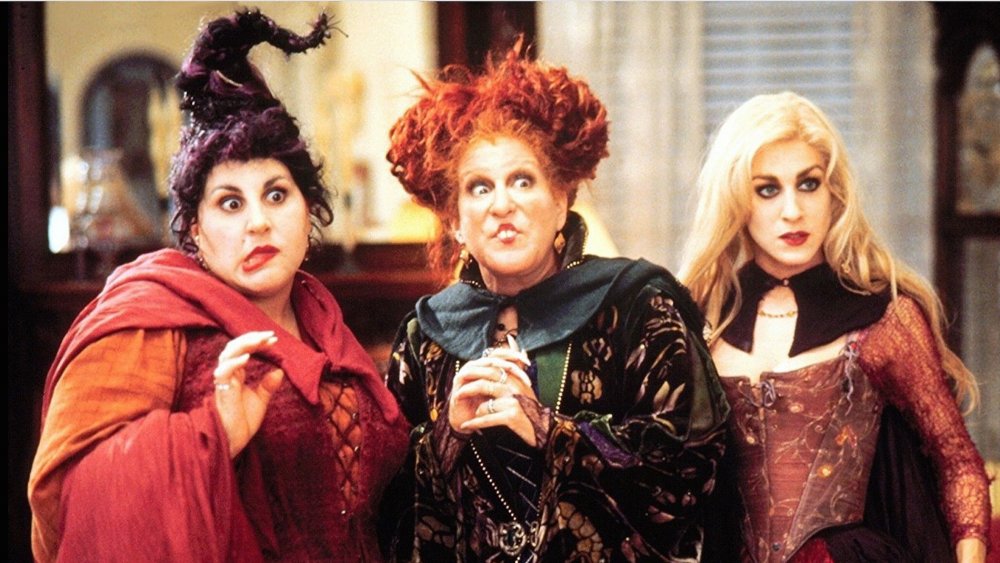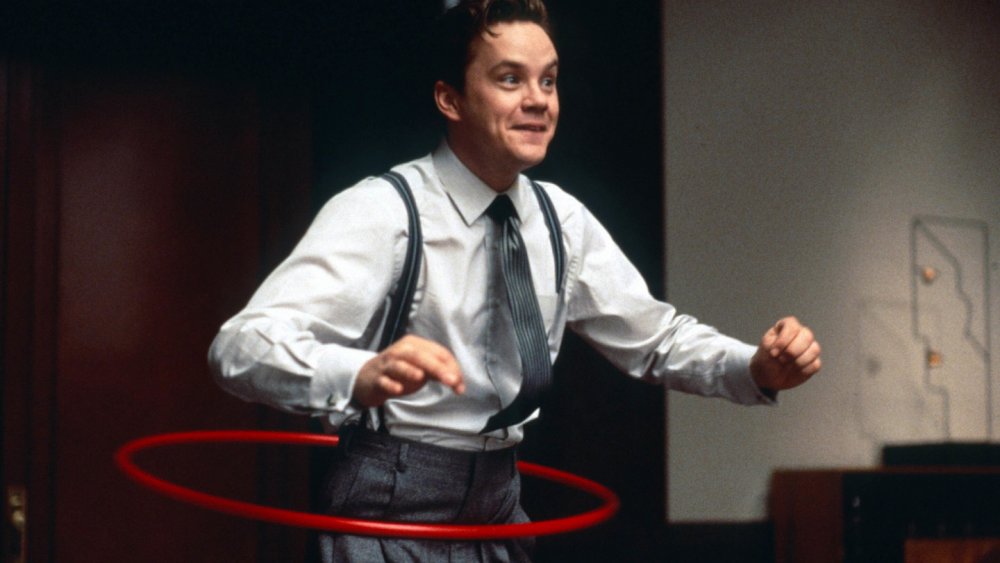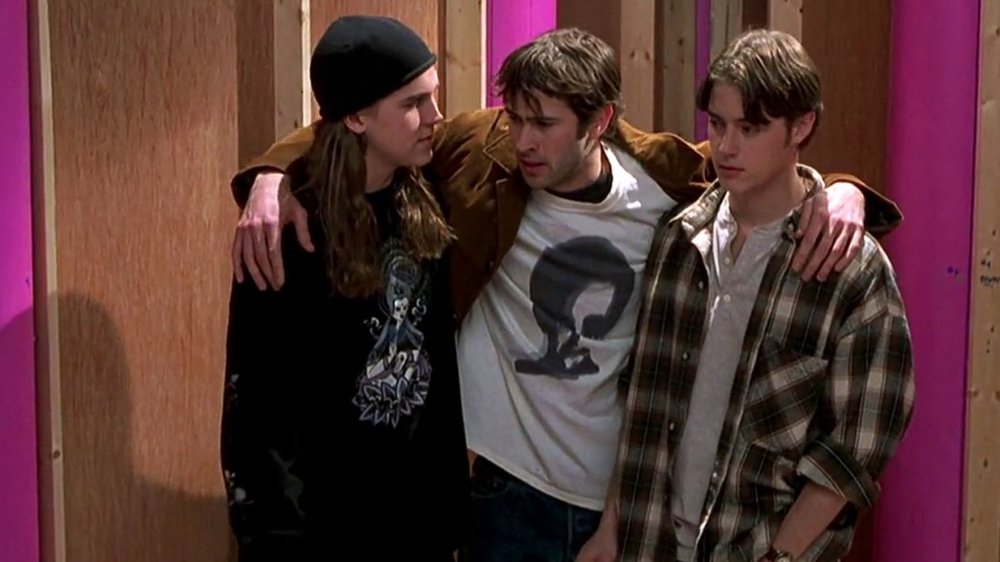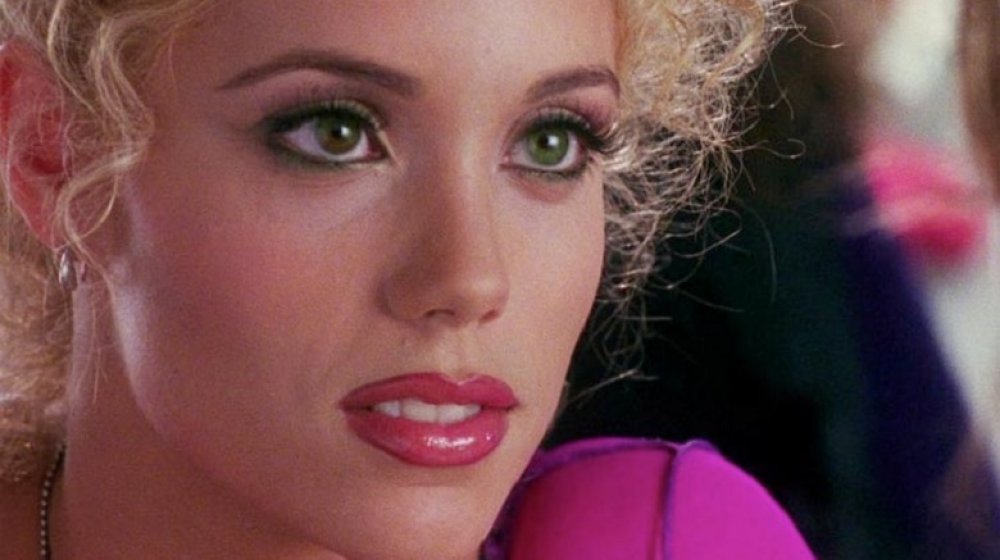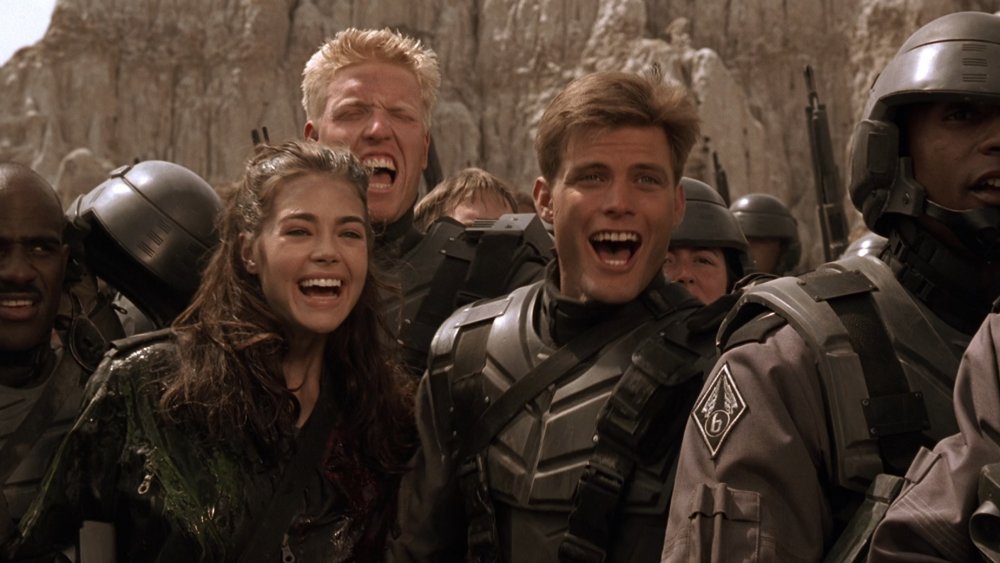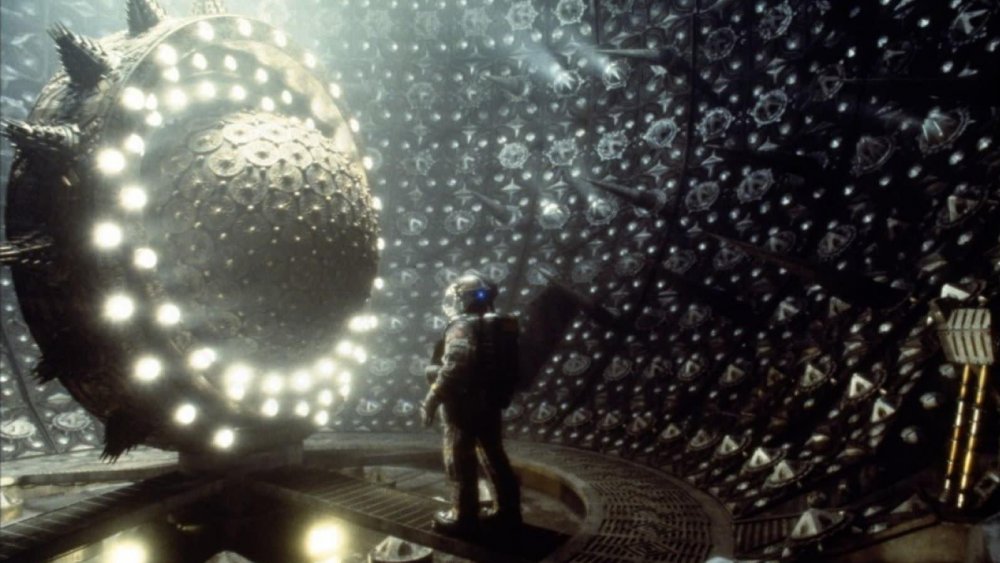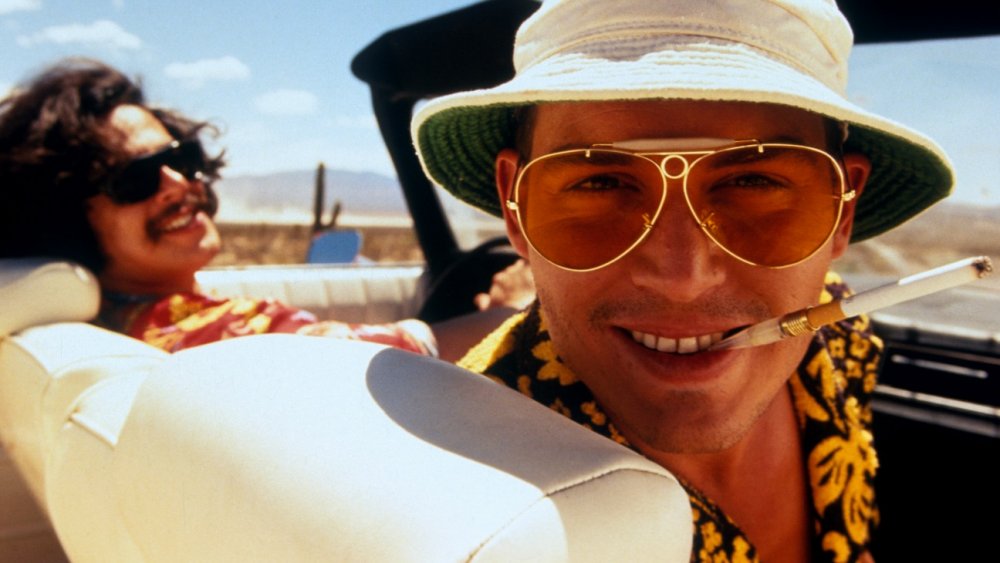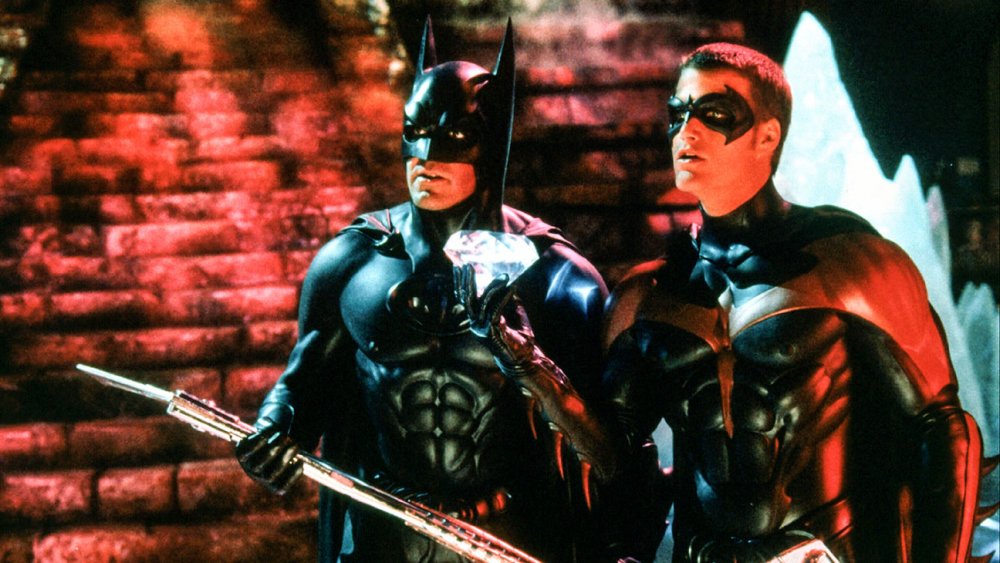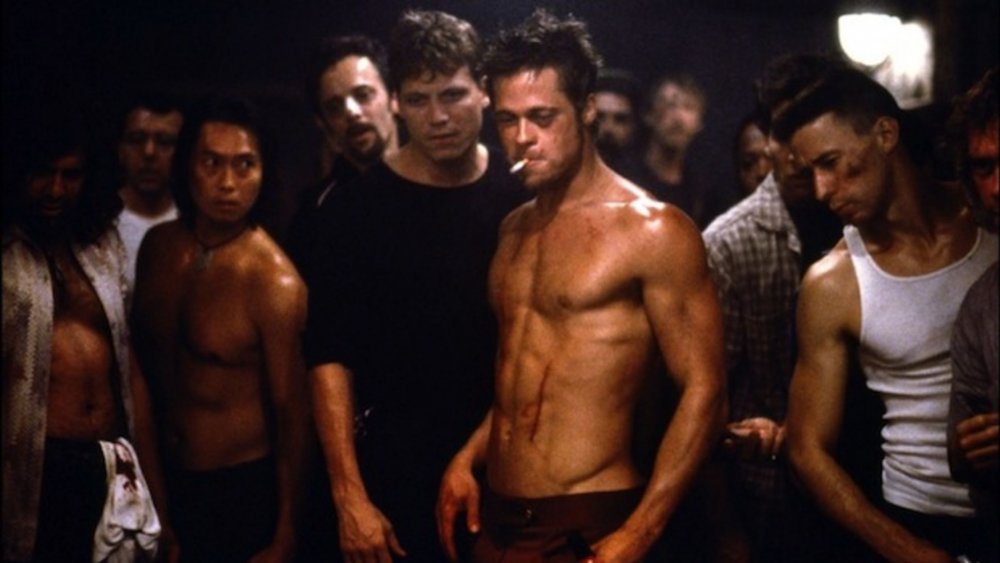'90s Movies It Took Years To Understand
Every so often, certain works of art need time to get the appreciation they deserve. Perhaps they arrived in front of the wrong audience at first, or perhaps they were doing something the general public just wasn't ready for. Maybe they made a bad first impression and had to fight around that. Whatever the case, time is important, and that's especially true with movies, especially ones from the 1990s.
The '90s was an interesting decade for film. The indie film movement was booming, studios were churning out bigger and bigger blockbusters, and Hollywood was creating Oscar-baity films to win critical prestige. However, a lot of these movies flopped at the box office and were skewered by critics ... only to find a fan base in the years afterwards. The rise of home video rentals and purchases allowed many of these movies to find double life, and thanks to our ability to keep looking back, some films that landed with a thud in the '90s have since been reappraised and become hits in their own ways. From mysterious thrillers to campy superhero flicks, here are the '90s films that took years for us to understand.
Twin Peaks: Fire Walk with Me has found new fans
For a brief time in the 1990s, the strange mystery soap opera series Twin Peaks was one of the biggest phenomenons on American television. Viewers turned in week after week, sucked in by the show's central "who killed Laura Palmer?" mystery, to absorb the latest developments in David Lynch and Mark Frost's strange little Pacific Northwest town. Then the network demanded the Laura Palmer mystery be solved, the show's time slot began to bounce around, ratings declined, and suddenly, Twin Peaks was dead after just two seasons.
In the aftermath of the show, Lynch decided to mount a comeback for the story in the form of a prequel movie that would document the last week of the doomed Laura Palmer's life. Twin Peaks: Fire Walk with Me arrived in the U.S. in the summer of 1992, where it was promptly greeted with negative reviews and a very poor box office performances. Critics and moviegoers alike were turned off by the film's bleak tone, as it skipped over many of the more comedic elements of the strangely funny series in favor of something darker. It took years, but recently — particularly after the debut of the sequel series Twin Peaks: The Return in 2017 — Fire Walk With Me has gained a devoted following who count it among Lynch's best works and a worthy prequel to a very strange TV trip.
Hocus Pocus has become a cult classic since the '90s
Every once in a while, you meet someone who tells you they saw Hocus Pocus in theaters back in 1993 and that they've always loved this Disney comedy about a trio of witches who are resurrected for some Halloween mayhem after 300 years of waiting. The film certainly had a few fans upon its release but not enough to make it a hit. The film was critically shredded when it debuted and barely registered at the box office. But time has certainly been kind to the Sanderson sisters and their spooky adventure.
The rise of Hocus Pocus as a hidden '90s gem began, as so many of these journeys do, with home video. The movie became a popular title thanks to its family friendly presence and its very Halloween-y atmosphere, and that made it a hit for childhood Halloween late nights, slumber parties, and much more. Then came ABC Family's (now Freeform) 13 Nights of Halloween event, where the film became an October programming staple and drew in even more fans. Now, all these years later, Hocus Pocus is flat-out revered by audiences and retrospective critics alike.
No one understood or appreciated The Hudsucker Proxy
Today, Joel and Ethan Coen are considered one of the finest filmmaking teams ever. Each new movie they release is considered a major cinephile event, and we expect their films to either be critically adored, commercially successful, or both.
This wasn't always the case, though, and if you look back through the Coens' filmography, a few choices stand out as notable shortfalls. Arguably, the first of these in the Coen canon is The Hudsucker Proxy, released in 1994 as the brothers' follow-up to their Palme d'Or-winning masterpiece Barton Fink. Conceived as a throwback to the post-Depression Hollywood comedies of the 1930s and 1940s, the film follows a young businessmen who's suddenly catapulted to the top of a major company. Working with the biggest budget of their careers to-date, the Coens poured Old Hollywood style into the film ... and critics and audiences were largely uninterested. The Hudsucker Proxy arrived with a thud at the box office and was the first major critical disappointment of their careers as writer/directors.
However, because the Coens made it, Hudsucker has gained prestige with time, and more recent reappraisals have heralded it as a stylish merging of 1930s style and 1990s sensibility. Plus, Tim Robbins is absolutely delightful in the lead role, resulting in a movie that's for adult and, you know, for kids.
Mallrats found a second life on home video
In 1995, Kevin Smith was a young filmmaker riding high from the success of his debut feature — the low-budget, black-and-white, indie darling Clerks. The success of Clerks, made on a shoestring budget at the convenience store where Smith worked, attracted the interest of studios who were able to give him real money to make a follow-up. That follow-up was Mallrats, the "young people hanging out at a mall" to Clerks' "young people hanging out at a convenience store."
Smith's first showcase in front of a wide theatrical audience didn't go well. The film bombed at the box office, received middling reviews, and sent Smith back to indie financing for his third film, the acclaimed Chasing Amy. But as with so many films released in the '90s, Mallrats found a second life in the home video market. And like Clerks, fans just kept discovering the film and getting lost in Smith's dialogue. By the 2000s, Mallrats was being reappraised as one of Smith's most enjoyable works, and in 2020, Smith announced that he'd completed a new script for a long-gestating sequel.
Showgirls has become a camp classic since the '90s
In the early 1990s, after the success of Basic Instinct — a controversial erotic thriller that contains one of the most infamous nude scenes ever — director Paul Verhoeven and writer Joe Eszterhas could basically take their pick in terms of what they wanted their next project to be. Eszterhas picked Showgirls, the story of a driven young woman named Nomi Malone (Elizabeth Berkley) who hitchhikes to Vegas and begins to climb up the showbiz ladder.
Like many of Verhoeven's films, Showgirls is often deliberately over-the-top in its depiction of Nomi's all-out pursuits, full of melodramatic dialogue and frequent nudity and sex. As a result, the film received an NC-17 rating when it was released in American theaters, and while that may have shrunk its audience, it was also nearly universally loathed when it first premiered. Critics savaged the film, audiences didn't show up, and Showgirls won seven Golden Raspberry Awards.
Then two key things happened. First, the LGBT community latched onto the film for its incredible campiness and began selling out specialty screenings. Then, the home video market propelled viewers everywhere to buy or rent the film to see if it was really as bad as its reputation. Showgirls became a cult favorite and a bestseller on home video, but the love didn't stop there. In recent years, some critics have even taken the "so-bad-it's-good" label off the film, in favor of dubbing it a new camp classic.
Starship Troopers is one of the most misunderstood movies ever made
Robert Heinlein's 1959 novel Starship Troopers is an unabashed tribute to the value of military service and being a good citizen in service to a greater cause. Paul Verhoeven, the director of the film adaptation released in 1997, called it both a "very right-wing book" and "so boring" that he couldn't finish reading it. So it's no surprise now that Verhoeven's Starship Troopers is only loosely related to the novel and also completely geared toward ripping Heinlein's message to shreds.
Critics and audiences alike were confused by Starship Troopers when it first hit theaters, full of over-the-top action and propaganda parody often lifted directly from Nazi filmmaking techniques. Verhoeven had made a bombastic, deliberately ridiculous version of the space military Heinlein had taken so seriously, and a lot of people either didn't get the joke and thought the film was fascist or were so confused by the differences between film and novel that they were turned off by it.
In retrospect, though, Starship Troopers has come to be appreciated for the blistering, high-concept satire that Verhoeven intended. It has since been called one of the best films of 1997, and it continues to attract fans to its ultra-violent weirdness.
Event Horizon found its fan base years after its release
Event Horizon is one of those movies that couldn't find an audience when it first hit theaters, but it became exactly what the filmmakers intended it to be. It just took a little bit of time. Hoping for a spooky summer space adventure, Paramount Pictures gave director Paul W. S. Anderson a big budget and lots of leeway to make the film the way he wanted. Then came the problems, as Anderson faced a tight post-production schedule to make release date, a disastrous test screening, and hefty cuts at the studio's request that made the film's third act in particular a bit rough.
While it had a few critical defenders upon release in 1997, Event Horizon ultimately became a critical and commercial disappointment. Then came home video, and viewers — perhaps thinking they'd just stumbled upon an amusing Alien knockoff — started to pick up on the film's spooky vibe and the chemistry of its ensemble cast. Event Horizon has since continued to build its audience in the age of streaming, and it's now lauded as a horror cult classic. And it definitely deserves that title. The movie does a fantastic job of building dread, and while the climax isn't perfect, it features some truly disturbing images and messed up sci-fi moments, on par with anything a traditional horror flick like Hellraiser might have to offer.
People in the '90s weren't ready for Fear and Loathing in Las Vegas
For a certain kind of cultural consumer, Fear and Loathing in Las Vegas must've looked like the perfect movie when it rolled into theaters in 1998. Hunter S. Thompson's legendary story of a drug-addled, countercultural adventure translated by no less of a madcap cinematic mind than Terry Gilliam? If you had the right sensibility at the time, it must've felt like a match made in heaven. The trouble was that, back in '98, a lot of audiences and a lot of critics weren't buying it. The film was a box office disappointment, and critics laid into the movie for being all about weirdness for weirdness' sake, with no real substance to go with Gilliam's wild style.
Of course, like so many movies that lean heavily into strangeness and unconventional storytelling, the stream of consciousness ride of Fear and Loathing ultimately caught on, as more and more film fans and Gilliam completists sought the film out on home video. It has since become a cult classic and even a misunderstood masterpiece, which critic Scott Tobias called "a rare film that demands repeat viewings."
Batman & Robin provides a nice break in the era of super serious superheroes
There's a certain public narrative when it comes to Batman and his history as a pop culture icon. It goes like this: "First, it was dark, then some idiot decided to make it goofy, then it got dark again, and that was good." You hear it about the comics, and you hear it about the films, and with the films in particular, it's easy to see the pivot point. It arrived in 1998 with Batman & Robin.
While Joel Schumacher's first Batman effort, Batman Forever, was a recognizable departure from Tim Burton's more Gothic approach, Batman & Robin took things into the realm of all-out camp. It's a film loaded with neon, puns, close-ups of Bat-nipples and Bat-butts, and there's even a Bat-credit card at one point. The over-the-top approach was too much for both fans and critics, and the film gained a reputation as one of the worst movies of the 1990s and the movie that put that Batman franchise on pause until Batman Begins revived it in 2005.
However, time has been relatively kind of the film. Even if many viewers still can't admit that it's exactly good, they can at least continue to revisit it as a film that's so strange and so committed to its approach that it's still interesting. The film has also picked up more than a few defenders over the years willing to call it a camp classic, and sometimes, it's just nice to revisit the movie as a palate cleanser after hours of Bat-brooding.
Audiences still don't understand Fight Club today
For better or worse, David Fincher's Fight Club remains one of the most culturally influential films of the 1990s, a movie packed with references, lines of dialogue, and themes that are still echoed in pop culture today. Despite its impact, though, Fight Club remains almost as divisive and controversial now as it was upon its release.
Based on Chuck Palahniuk's novel of the same name, the film follows an unnamed narrator (Edward Norton) who's disillusioned with his life until he meets Tyler Durden (Brad Pitt), a cool and confident new friends who helps him found a temple to masculine expression they dub "fight club." The founding of fight club — and its resulting fallout and themes — is still a key part of the heated debate over the film. For some, Fight Club's depiction of hyper-macho violence is a promotion of toxic masculinity and anarchy that helped inspire real-life violence, and the film's detractors might see it that way forever. For others who've reexamined the film in the years since its release, Fight Club actually functions as a commentary on toxic masculinity and the need to destroy it before it consumes you. The debate rages on, but some viewers and critics have at least managed to figure Fight Club out at this point.
